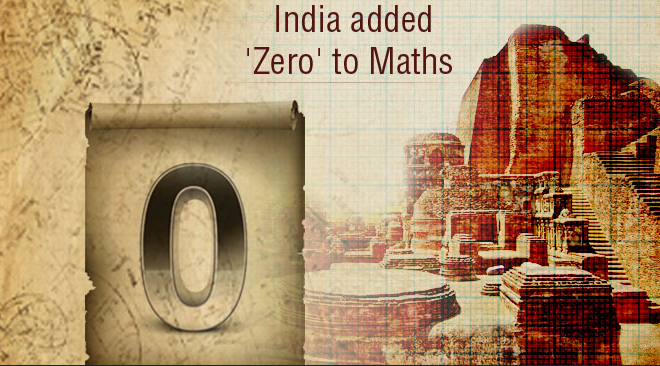Do You Know the History of Indian Inventions That Changed the World
#IndianInventions, #HistoryOfIndia, #ZeroToInfinity, #AyurvedaScience, #YogaLegacy, #AncientIndia, #InnovationFromIndia, #ChessOrigin, #IndianAstronomy, #BinaryCode, #GlobalImpact, #SurgicalPioneer, #SmartIndia
KNOWLEDGE & EDUCATION
7/28/20253 min read


India is not just a country of rich culture and traditions—it is a land that has shaped human civilization through its deep scientific thinking, innovation, and creativity. From the ancient concept of zero to modern space technology, India has made lasting contributions that continue to influence the world. Let’s explore the incredible Indian inventions that have transformed global progress.
1. The Invention of Zero
Indian mathematician Aryabhata first conceptualized zero as a number in the 5th century.
Later, Brahmagupta, in the 7th century, formalized the rules for using zero in mathematical operations.
This innovation made complex calculations, algebra, and modern computing possible.
✅ Why it matters: The invention of zero is considered the *foundation of all mathematics and digital technology.
2. The Decimal System
The decimal (base-10) number system was also developed in ancient India.
It enabled the creation of efficient arithmetic operations.
This system later spread to the Islamic world and then to Europe.
✅ Today, the decimal system is universally used in mathematics and science.
3. Ayurveda – The Science of Life
Dating back to around 5000 years, Ayurveda is the oldest holistic healing system.
It includes herbal medicines, surgery, and lifestyle management.
Modern medicine continues to study Ayurvedic herbs like Ashwagandha, Turmeric, and Neem.
✅ Ayurveda’s emphasis on balance and prevention is echoed in modern wellness trends.
4. Surgery and Medicine
Sushruta, known as the “Father of Surgery,” practiced surgery in 600 BCE.
His book Sushruta Samhita describes over 300 surgical procedures, including plastic surgery, cataract removal, and cesarean sections.
He used over 120 surgical instruments, many of which resemble modern tools.
✅ India’s ancient medical practices were centuries ahead of their time.
5. Yoga – A Gift to the World
Yoga originated in India over 5000 years ago as a spiritual and physical practice.
Today, yoga is practiced by millions across the globe for health, mindfulness, and stress reduction.
The United Nations declared June 21st as International Yoga Day.
✅ Yoga combines movement, breath, and meditation—proven to boost mental and physical health.
6. Chess – The Game of Strategy
Chess was developed in India around the 6th century AD, originally called Chaturanga.
The game spread through Persia and later to Europe, evolving into modern chess.
It was not just entertainment, but also used to teach war strategy and critical thinking.
✅ Chess teaches logic, patience, and foresight—skills still valued in today’s world.
7. Ancient Metallurgy: The Iron Pillar
The Iron Pillar of Delhi, built in the 4th century AD, is a marvel of ancient metallurgy.
Despite being over 1600 years old, it hasn’t rusted—a mystery that still intrigues scientists.
Shows India’s advanced understanding of metallurgy and chemistry.
✅ Proof that ancient Indian engineers mastered corrosion resistance centuries ago.
8. Astronomy and Timekeeping
Aryabhata calculated the earth's rotation, lunar eclipses, and planetary motions.
The Jantar Mantar observatories built in the 18th century were sophisticated astronomical instruments.
India also used water clocks and sundials thousands of years ago.
✅ India’s astronomical knowledge was accurate and deeply rooted in observation.
9. Buttons and Cotton Textiles
Buttons were invented in the Indus Valley Civilization (circa 2000 BCE), made of seashells.
India also pioneered cotton cultivation and textile weaving, which became globally renowned.
Indian fabrics were highly valued in ancient Egypt, Rome, and China.
✅ Fashion and practical design owe much to ancient Indian craftsmanship.
10. Binary Numbers and Logic
Indian scholar Pingala (circa 200 BCE) created the earliest known binary number system.
His system used combinations of light and heavy syllables to represent binary digits.
Modern computing is based on binary code—highlighting India’s ancient roots in computer logic.
✅ Long before computers, India had already laid down the concept of binary data.
Conclusion
India’s legacy of invention is not a thing of the past—it’s an ongoing journey. From mathematical genius to wellness wisdom, and from surgical innovations to cosmic calculations, Indian thinkers have shaped how the world counts, heals, plays, and thinks. These contributions aren’t just history—they are the foundation of modern life.
Let us recognize and celebrate the timeless brilliance of Indian innovation.
Knowledge
Empowering minds with reliable educational content daily.
Newsletter Signup
© 2025 DoYouKnow. All rights reserved.
Stay Ahead of the Trends – Join Our Newsletter
